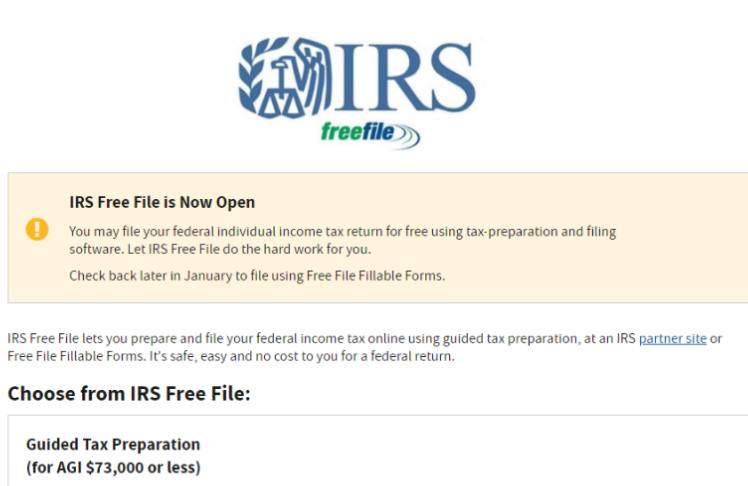
By Hamil R. Harris
(Trice Edney Wire) – The IRS is exploring a direct e-file system for tax returns. However, some believe the system would bring undue harm to historically marginalized communities – including Black and low-income taxpayers – based on recent reports concerning IRS enforcement actions.
The Internal Revenue Service submitted a report to Congress, required by the Inflation Reduction Act, which evaluated the feasibility of providing taxpayers with the option of a free, voluntary, IRS-run electronic filing system, commonly referred to as “Direct File.”
This report was issued just days after IRS Commissioner Danny Werfel sent a letter to Congress admitting that Black taxpayers are unfairly subject to audits more than any other group. The letter confirmed the findings in a Stanford University study released in January showing that Black taxpayers are 3-5 times more likely to receive an IRS audit than others.
Another academic study issued in January by Syracuse University noted that low-income taxpayers – primarily those who qualify for the earned income tax credit – are five times more likely to receive an audit than other tax filers. Both studies were conducted using data directly from the IRS.
Industry experts familiar with the e-file program developments and the reported imbalance in IRS enforcement actions noted that a new system built on a foundation of bias is risky and will have a negative impact on individuals and families already suffering from over audits.
More broadly, industry experts say the new system would make the process of filing taxes less transparent and undermine access to independent tax experts and advocates for all Americans. This could risk low-income and working-class taxpayers receiving smaller tax refunds than they deserve.
While the IRS report found that many taxpayers are interested in using a free IRS-provided tool to prepare and file taxes and that the agency is technically capable of delivering a Direct File program, the study is drawing fire from tax industry preparers like TurboTax.
Derrick Plummer, spokesperson for Intuit, the parent company of TurboTax, said in a statement. “The report released by the IRS is not grounded in reality. The study ignores the harm a government-run system will have on vulnerable taxpayers and the true costs to taxpayers. The prices estimated in the study to build, operate, and maintain are laughable. “
Plummer also said, “The study cherry-picks data to support its flawed conclusion ignoring that only 12% of taxpayers said they would use a government-run system if state returns are not included.”
The IRS report concluded that effective execution of a Direct File program would require sustained budget investment and careful management of the potential program’s operational complexity.
The report focused on three areas: taxpayer opinions, cost, and feasibility. The information included an analysis conducted by an independent third party, as required by the statute. The report also outlines the potential benefits and challenges associated with the IRS implementing a Direct File program.
“The IRS is committed to delivering significantly improved services by providing taxpayers with tools, information, and assistance to make it easier to comply with their tax filing obligations. Direct File – used by numerous tax jurisdictions worldwide – has long been discussed as an option for improving the customer experience for taxpayers in the U.S.,” said IRS Commissioner Danny Werfel.
Before the study’s release, lobbyists for tax preparers criticized how the IRS historically targeted people of color when processing tax returns.
Last month activists protested tax prep giants TurboTax and H&R Block for trying to slow the release of government tax filing programs, which was part of a mega million-dollar lobbying effort.
April 18 was the deadline to file taxes in 2023, and the IRS reported receiving 90 million returns as of March 30. Agency officials expect 168 million individual tax returns to be filed this year.
A report from the Stanford Institute for Economic Policy Research (SIEPR) released in January, found that Black Americans were more likely to be audited by the IRS than another taxpayer group.
“What we found was that the audit rate of Black taxpayers was 3 to 5 times the rate of audits for non-Black taxpayers, Stanford Researcher Daniel Ho told NPR.
He says the disparity doesn’t appear to be deliberate. The IRS doesn’t ask taxpayers about their race, and most audits are conducted by mail. But something in the way the agency decides who to audit results in Blacks being disproportionately targeted. And the new IRS commissioner, sworn in just two months ago, told NPR, “Our tax system must be fair.”
“I engaged with my team on day one to make sure it’s a priority to understand fully,” Werfel said. “How do we get to the bottom of it and figure out what we need to do going ahead?
While the agency is looking into the matter of disproportionate Black audits, an Intuit blog post notes that when it comes to direct e-file, taxpayers are concerned with “the conflict of interest of having the IRS as the judge, jury, and executioner of a taxpayers’ personal finances.”
According to the IRS report, approximately 60 percent of multiracial, Hispanic, Native Hawaiian, or Pacific Islander recipients received a payment in the first week, compared to roughly 55 percent of White, American Indian, Alaska Native, Black, or Asian recipients.
In contrast, White and Asian recipients were the most likely to receive their payments in the first six weeks, though more than 90 percent of revenues were received in the first six weeks for every racial/ethnic subgroup the authors examined.















